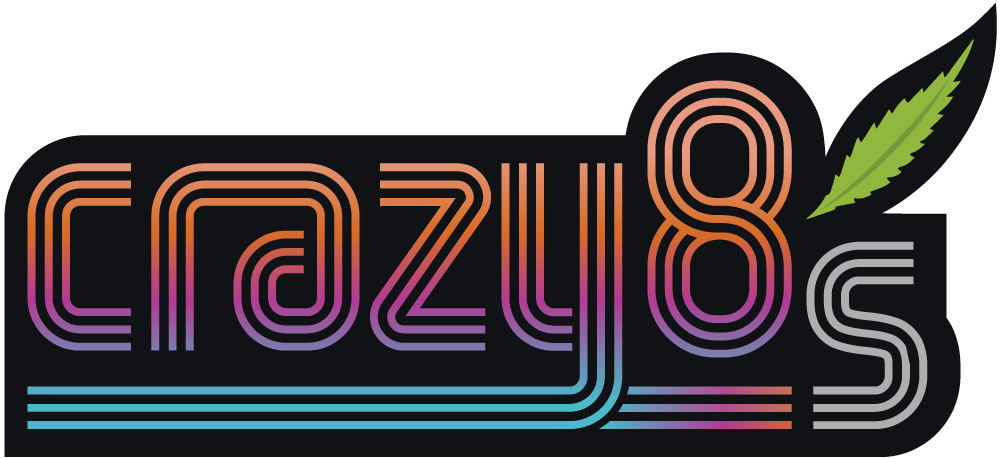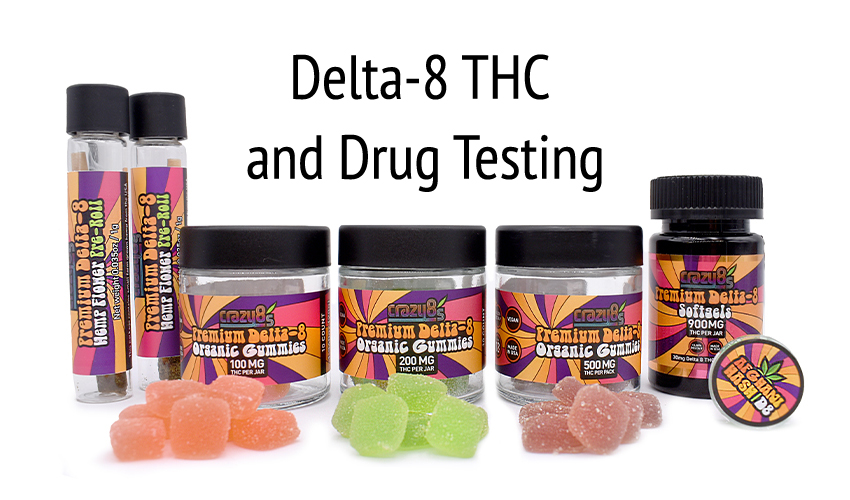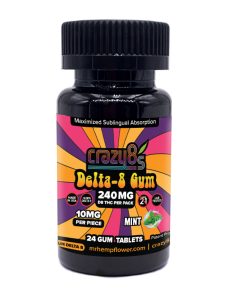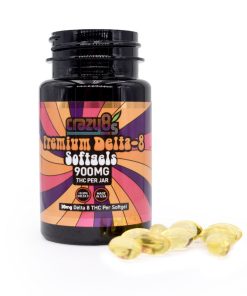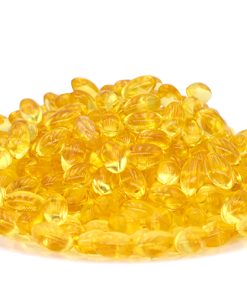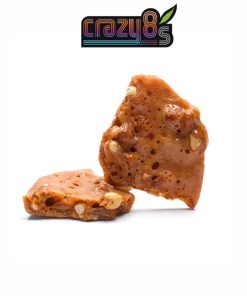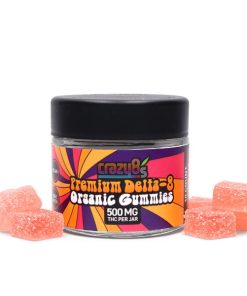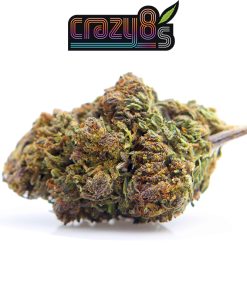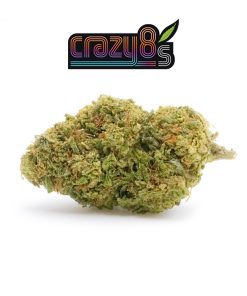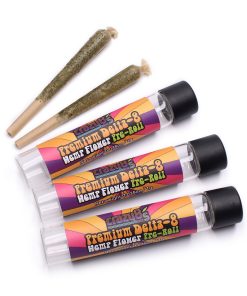Delta 8
Delta-8 THC and Drug Testing: Will You Pass or Fail?
Should you worry about failing a drug test after taking Delta-8 THC?
THC’s euphoria is fun, but it fades — typically after four to eight hours of inhalation or ingestion. What your body is left with, after the euphoria, are the THC metabolites that linger for weeks after use.
If you’re a regular Delta-8 consumer, you’re probably wondering whether it will show on a drug test. Can Delta-8 make you fail a drug test? Read on for in-depth answers.
What is Delta-8 THC?
The hemp plant is home to over 100 different cannabinoids. Alongside the popular CBD, CBG, CBN, and THC, there’s Delta-8 — a less potent form of THC. The cannabinoid was discovered in 1965 by Raphael Mechoulam, the “Father of Cannabis,” and is, currently, the backbone of the hemp industry.
D-8 occurs in the hemp plant in tiny concentrations (less than 0.1%), which is why it’s considered a minor cannabinoid. This compound has a very similar structure to Delta-9 THC, but it’s half as potent and causes a mild, clear-headed “high.” Users love this hemp cannabinoid because of its sedative effects that may potentially play a role in pain relief, anxiety relief, appetite stimulation, and neuroprotection.
Can Hemp Delta-8 THC Make You Fail a Drug Test?
You are most likely to fail a drug test after using Delta-8 THC.
Regardless if you’re consuming Delta-8 from hemp or Delta-9 from marijuana, your body metabolizes both cannabinoids into THC metabolites with a *very* similar structure.
Furthermore, drug tests are not finely tuned, so any amount of THC in your body can cause you to fail it.
The difference is, if the product you’re consuming comes from hemp and contains less than 0.3% Delta-9 THC, you are not doing anything illegal. Yet, it’s wise to communicate this with your employer and prove that you are not breaking the law and using legal products.
This also depends on the type of test used (most common is urine), frequency of use, and metabolism. The THC molecule can be broken into 80 different metabolites that nest in your body’s fat cells. They don’t fade away till 30 to 60 days after last use — again, depending on the frequency of use and metabolism.
If the store that’s selling D-8 products advises you to “not worry about a drug test” or that “it won’t show up for sure,” RUN in the opposite direction.
Because here’s the deal: Delta-8 is a tetrahydrocannabinol and is metabolized in the body as such. Meaning, long after the effects of Delta-8 are gone, its metabolites continue to exist in your body. D-8’s metabolites inhibit your urine, sweat, and hair and hold witness to your consumption of this compound. And these byproducts or THC metabolites are what the test is looking to detect.
Why Will You (Most Likely) Fail the Drug Test?
Most THC tests are designed to look for Delta-9 THC. We all know that these two are different (yet, very similar) cannabinoids. So, how can a drug test that looks for Delta-9’s metabolites detect Delta-8’s?
The answer is cross-reactivity. Cross-reactivity of a test means that a standard test is sensitive to the point where it can detect the presence of a compound with a similar structure to the one that the test has been designed to detect. In fact, it detects the presence of total cannabinoids rather than just THC.
Urine tests are optimized to detect the primary inactive metabolite of Delta-9 THC, known as THC-COOH.
But, because tetrahydrocannabinols and their metabolites are extremely similar chemically, the enzymes that recognize Delta-9 THC’s metabolites are very likely to catch other forms of THC like Delta-8.
Now, the thing is: you don’t have any Delta-9 THC in your system (considering the Delta-8 THC products you’ve consumed contain less than 0.3% delta-9 THC). Meaning you’re not doing anything illegal and may be able to explain the situation.
To avoid confusion and possible complications at your job, make sure you inform your employer of the Delta-8 product you wish to take in advance. If they give you the green light, you can use this cannabinoid beforehand. Please be cautious about using Delta-8 if you’re at a job where the employer performs testing and can cause you trouble.
It’s important to know that if you don’t have any actual Delta-9 THC in your body, this is a “false positive” test. If you use pure D-8 products with less than 0.3% THC, you may be able to explain that you haven’t consumed Delta-9, which is an illegal substance.
Typically, most companies stick to the urine test, which might be bad news for you if it turns out positive. Some companies go further and perform a gas chromatography test. This slow and tedious lab test identifies only the presence of Delta-9 metabolites in the urine. That is, unless it looks for Delta-8’s metabolites specifically, the test will turn out negative, and the initial urine test will be nullified.
Delta-8 THC & Types of Drug Tests
Urine tests are the most common for workplace drug testing. There are two kinds of urine tests used:
-
Immunoassay (IA) Test
The IA test (standard urine test) is a quick test that detects the inactive THC metabolite THC-COOH. Unfortunately, it can also detect the presence of other cannabinoids — despite not being designed for them. A study tested four kinds of cannabinoids to the sensitivity and cross-reactivity of a urine test designed to detect THC-COOH. The four cannabinoids were cannabidiol (CBD), cannabigerol (CBG), cannabinol (CBN), and cannabichromene (CBC).
The study revealed that the urine test showed “significant cross-reactivity” with CBN. This cannabinoid is a product of THC degradation, which is also the case with Delta-8 THC. The study also revealed that this cannabinoid combo (THC and CBN) led to a higher percentage of THC in the results as opposed to having only Delta-9.
Due to similarity in structure, the same thing could happen when you consume D-8 THC. Another reason is that some standard urine tests are designed to detect Delta-8’s metabolites as well.
-
Gas Chromatography Test
This is an analytical lab test that identifies the presence of a certain compound. Say you tested positive for THC on the initial urine test. The company you work for may go further with the screening and request this lab test. Unless they look specifically for Delta-8 THC, you will not test positive for THC on this one.
That, again, depends on the frequency of use and type of product. If you are using regularly and the products contain higher levels of Delta-9, you may still test positive. So, it’s important to choose products with a D-9 THC concentration of less than 0.3%.
-
At-home Drug Test
Some users “monitor” THC use with at-home drug tests. In general, they are unreliable and are very likely to show a positive result because they are the least advanced of all drug tests. One of the main drawbacks of these tests is that they are not designed to differentiate between different cannabinoids. So, even after consuming CBD, you may pop positive on a home drug test.
How Long Does Delta-8 Stay in Your System?
Although we don’t have all the answers on D-8 THC, this molecule is a tetrahydrocannabinol. Meaning it lingers in the body within a similar time frame to other THC molecules.
Even if you’ve used Delta-8 THC for the first time (and just once), it may stay in the urine for 4 to 8 days.
Heavy users (using it daily) can test positive on a drug test for 30 to 60 days — or longer — after last use.
Moderate users (between two and four times a week) can pop dirty on a urine test for up to 3 weeks after consumption.
The detection window depends on several factors, including:
- Hydration
- Frequency of use
- Method of consumption
- Type of tests used
- Metabolism
- Body fat concentration
Meaning, the more you use it, the more it will accumulate in your body. As mentioned, the body stores THC metabolites in the fat cells. So, people with higher body fat concentration may show positive longer than those with a faster metabolism and lower body fat percentage. Therefore, your lifestyle, current weight, cannabis tolerance, etc., all affect how long Delta-8 can stay in your system.
That said, different types of tests have different detection times. Saliva tests detect THC for approximately 24 hours after use, while hair follicle tests are the most sensitive and can detect THC up to 90 days after use.
How to Avoid Testing Positive for Delta-8 on a Drug Test
Although we don’t have too much information on Delta-8 and drug testing — this compound is almost identical to Delta-9. Therefore, it likely requires about the same amount of time to clear out of your system.
The only thing you can rely on to pass your test is time. Meaning, you should consider implementing a tolerance break.
The most critical factor that can prevent THC metabolites from showing on a THC drug test is the time from your last use to the time of testing. Now, how much time does it need to pass, ideally, to avoid testing positive?
If you use Delta-8 occasionally, you might need a tolerance break of five to seven days since last use. If you use it regularly, you’ll likely need a one to three-week break, depending on the frequency of use. And, if you use it every day, you’re going to have to give it up for, probably, longer than a month (four to six weeks).
Are there other things you can do to speed up the process? Solutions like a healthy diet, proper hydration, and exercise may speed up your metabolism and help you burn those THC metabolites faster. But, these solutions are not guaranteed to help as much as a tolerance break would.
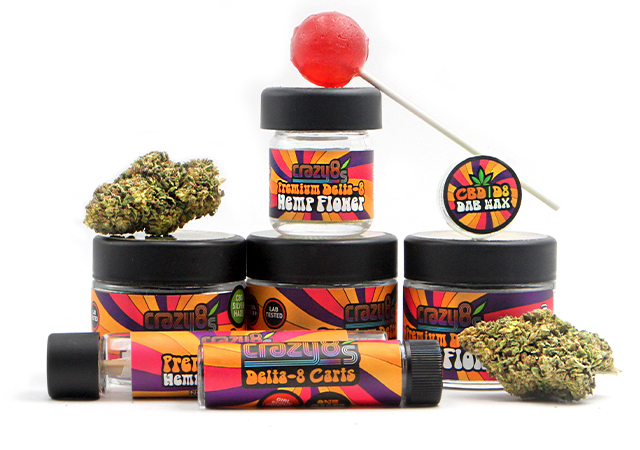
Looking for Quality Delta-8 THC?
Ease into this cannabinoid with our top-shelf products made with care. At Crazy8s, we offer a variety of products designed to accommodate as many needs as possible, including:
We know there are plenty of bad apples on the market. So, when you buy from us, you can buy with confidence, knowing that the product you’re using is pure and tested.
FAQ’S
Yes, Delta-8 is most likely to show up on a drug test. As a THC molecule, the body metabolizes D-8 THC similarly to D-9, which means you can fail a drug test.
Our bodies retain THC for 4 to 8 days, even after one-time use. The body of the frequent user may retain it up to three weeks after last use, while heavy users up to 6 weeks.
Tolerance break, aka time, is the most reliable solution to help you avoid testing positive for D-8 THC.
